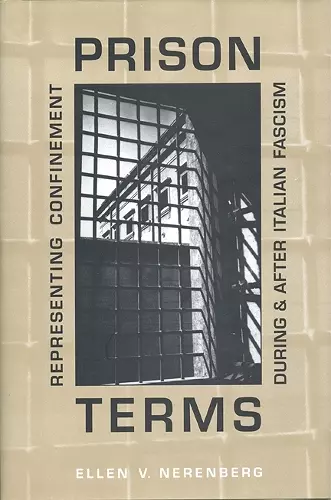Prison Terms
Representing Confinement During and After Italian Fascism
Format:Hardback
Publisher:University of Toronto Press
Published:30th Jun '01
Currently unavailable, and unfortunately no date known when it will be back

'Prison Terms makes it virtually impossible to think about Fascism and Democracy in Italy in quite the same ways that have been proposed before.' -- Robin Pickering-Iazzi, Department of French, Italian, and Comparative Literature, University of Wisconsin Milwaukee
An analysis of the confinement experience in Italian narrative between 1930 and 1960, covering the last years of Fascism. Not limiting herself to prisons, Nerenberg also explores military barracks, convents, and brothels as carceral homologues.
In this ground-breaking work, Ellen Nerenberg offers an analysis of the confinement experience in Italian narrative between 1930 and 1960, the last fifteen years of Fascism and the fifteen that followed. Nerenberg diverges from the notion that a radical break from Fascism coincided with Mussolini's fall, instead revealing a disturbing continuity of social restraints following World War II.
Drawing on critical discourses of architectural design, urban planning, and cultural geography, Nerenberg offers readings of Buzzati, Piovène, de Céspedes, Banti, Morante, Pratolini, and Gadda. Not limiting herself to prisons, she also explores military barracks, convents, brothels, and homes as carceral homologue. In a surprising investigation of the male body as defined by the architectural space of the barracks and the discursive practices of military guides and journals, she challenges the notion circulated during Fascism of a homogenous model of masculinity. She also probes the social and symbolic positions of women in relation to confinement, the law, power, and liberty. In a chapter titled "House Arrest," she treats the ominous space of the home as a homologue for prison wherein "women are induced into criminality."
A study of literal and literary spaces during and after Italian Fascism, this work examines the ways in which Fascist cultural and discursive practices and ideology endure in other guises past the fall of the Regime.
- Short-listed for Howard R Marraro Prize, Modern Language Association 2001 (United States)
ISBN: 9780802035080
Dimensions: 235mm x 158mm x 26mm
Weight: 596g
224 pages